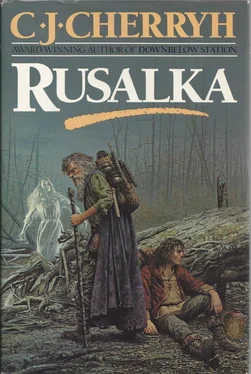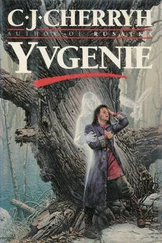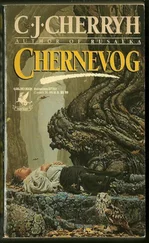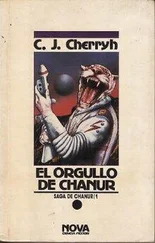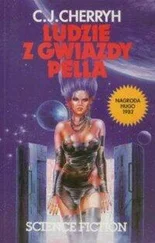Uulamets walked away in disgust. Sasha shook at his arm and whispered, “Pyetr, I think she’s a rusalka . And that’s a dangerous kind of ghost… she’s terribly dangerous, even to her own father. She could be responsible for the forest dying. Please. Don’t make jokes. Answer him. Tell him everything you saw.”
“I didn’t see anything,” Pyetr said irritably. “He’s drugged the damned stew, is what he’s done. I told you watch him. Now we’re seeing drowned girls and there’s a bear under the house.” He took another drink, telling himself that if it was drugged, it had proved a dreamless sleep given enough quantity; and that was good enough tonight.
“Pyetr. Did she say anything?”
“I don’t want to talk about it.”
“Let him be,” Uulamets said from across the room. “Let him drink himself into a stupor if that’s what he chooses. It’s not required he be sober.” Uulamets went back to his chair and his book.
“Please,” Sasha said, “master Uulamets—”
“Don’t be gullible,” Pyetr snapped.
“No need of anything tonight,” Uulamets said, “except his existence here.”
A man could justly feel indignant when the only company he had left sided with a man like Uulamets. Friend, indeed— boy , child, ward, charge: he had promoted ’Mitri to friend , and most of ’Mitri’s faults, he thought, outside Mitri’s outright villainy and the fact that he was increasingly tending to his father’s character—were the faults of a sometimes-man, sometimes-boy. He had his own faults, too, the god knew, among them that he had constantly to look for loyalty in someone younger than himself, because he did not, he admitted it to himself in his most morose broodings, seem to inspire it in more mature folk-Mature folk who had no sense of humor, damn them all, and who could not laugh, and who plodded about their work and their affairs and their petty concerns as if it was all too grim. Or there were villains, plenty of those, who laughed only at the folk they robbed. That was more than grim, and Pyetr had never wanted to be a villain. His father had been one, the god of thieves knew, and Pyetr did not miss him: he only aspired to pluck the fools a little and make them wiser, and play pranks on the ploddingly sober sort and wake them, and generally to amuse himself and find a handful of well-placed, lively friends and of course a lady or so to admire his wit. It seemed a modest ambition for a lively, easy-going fellow, in a world in which so few people cared to fill that role.
But tonight he decided he must be out of step, he must have mistaken everything, to end up here with no friend in the world, only a boy to take care of, one of the ox-sober ilk who was desperately determined to take the world seriously, and who somehow had taken him in hand and bartered and traded him to some lunatic self-named wizard, all for his own good, of course, never mind the wizard was poisoning them with drugs—the god only knew what had happened to his daughter…
He was drunk. Or drugged. Probably the wizard boiled people up in his kettle when he got them to trusting him. Or fed them to whatever he kept in the cellar. Domovoi indeed. Rusalkas. House-things and Things in the yard and things going bump in the cellar under the boards he was sitting on.
He dropped his head against his arm. He listened to the boy talking to Uulamets, who was telling him things about spells and incantations and how he knew that he could bring his daughter back if he could find the right tree.
And the boy stood there and listened to all this.
The boy who thought he was a wizard himself—listened to all this and answered questions like: How did she seem to you?
Sasha said: Just a wispy thing. All white. Like a cloud. Couldn’t you see her, sir?
And the old man said, after a moment: No.
Then, the boy asked—how did you know where to look for her?
Liquid gurgled into a cup. The old man said, I didn’t. But my daughter wouldn’t give up life so easily. Her mother—
The cup banged onto the table.
Her mother’s disposition and my ability, Uulamets said harshly. Go to bed, boy…
The cup was in danger. Sasha lifted it carefully from Pyetr’s fingers and put it on the shelf, and Pyetr never twitched. The old man wanted his book, Pyetr was asleep, and that was just as well, Sasha reckoned: Pyetr just did not deal well with this kind of thing—no discredit to Pyetr: Sasha reckoned that, too, that being deaf and blind to certain things all one’s life and then being knocked down and trampled underfoot by one had to disturb a man like Pyetr, who, Sasha figured, might joke and clown about—but certainly, certainly when he had ridden so recklessly under The Cockerel’s signboard, and it looked as if it was all chance—Pyetr had known better than most folk ever did just precisely where the ground was.
That was what he sensed about Pyetr, and Sasha was greatly put out with the ghost-girl, who after all was cruel—rusalkas were always cruel, it being their nature—but still, still , he was the one of the two of them who truly would have wanted a glimpse of her, and the one of the two of them who might have-he hoped—had at least a chance of reasoning with her; and she had gone and played her tricks instead on poor Pyetr, who could have gone all his life quite happily thinking there was a dog in the yard and a bear under the house and that Sasha Misurov’s wishes had no power over him.
He wanted Pyetr safe. That was all he let himself think about, sitting there beside Pyetr, listening to the slow turn of pages in Uulamets’ book; and knowing that the domovoi beneath the house was mightily disturbed and manifesting itself with all the threat it could muster.
He wanted himself safe. He did not forgive Uulamets for tricking them, most of all for not forewarning him, when a forewarning might have helped. He did not forgive himself, for losing his wits in the chase after Pyetr and not remembering that against a magical thing, his wishing might have some virtue. So he sat and wanted them safe now with all the strength he had, quite collectedly, and did not want to-see the rusalka: he dis missed all curiosity toward her, and simply did not want her, as hard as he could.
After which decision the domovoi at least settled down and quit meandering about the basement. He thought that that was a good sign.
He did not let himself think otherwise.
Only, eventually, there came a prickly feeling to his left, and he was aware that there had been a long silence of pages, and that Uulamets was looking at him.
Then he knew by wishing that way he had made a great mistake.
For a long while Uulamets looked at him, and finally crooked a finger. Sasha let go the blanket and got up and came over to the table, with a greater and greater feeling of hazard. Under his feet the domovoi stirred and shook the house beams. He thought of wishing it quiet, directly against master Uulamets, of trying himself against a wizard, but that was only the merest passing thought, and he knew it was foolish, foolish now to do anything but be polite and show respect and not even to attempt to defend himself except as the most extreme last hope.
He bowed. He looked up at master Uulamets and the timbers of the floor creaked softly.
“Who sent you?” Uulamets asked softly.
“Master Uulamets, no one sent us. We haven’t lied. Only—”
“Only?”
“When I was very small my relatives thought—” He was going to stammer, he knew that he was, and he locked his hands behind him and got a quick breath. “—I might be a wizard, or unlucky, or something of the like. But the wizards in Vojvoda just said I was born on a bad day.”
Читать дальше
